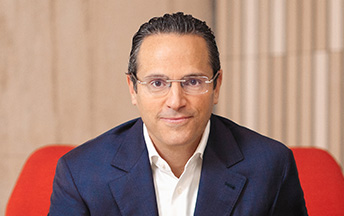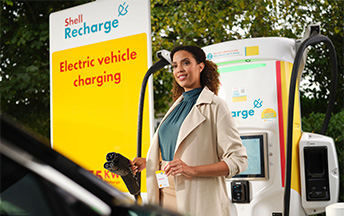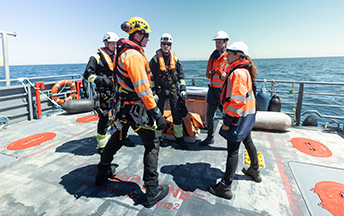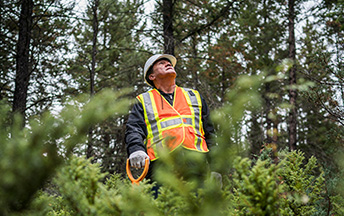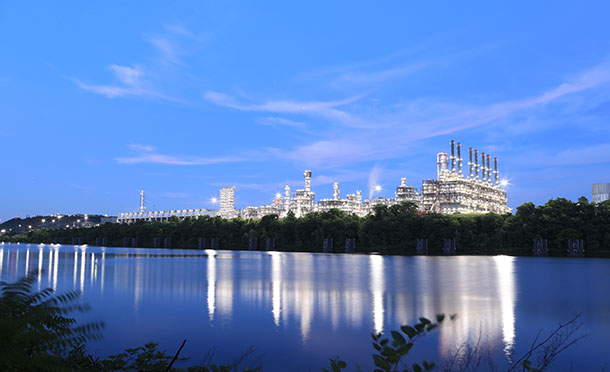Embedding sustainability into our activities
Projects
Safety and the impact of our activities on the environment and communities are vital considerations when we plan, design and operate our projects and facilities. The mandatory requirements in our Health, Safety, Security, Environment and Social Performance (HSSE & SP) Control Framework help to ensure projects and facilities are designed and constructed safely, responsibly and in a consistent way.
At a project level, assessing climate-related risks is an important part of making initial investment decisions. Projects under development that are expected to have a material greenhouse gas impact must meet our internal carbon performance standards or industry benchmarks. This helps to ensure that our projects can compete and prosper in the energy transition.
In 2022, we took a final investment decision to start building Europe’s largest renewable hydrogen plant in the Netherlands. Once operational in 2025, the plant will produce up to 80 tonnes of renewable hydrogen per day using clean energy from an offshore wind farm partly owned by Shell. The hydrogen will supply the Shell Energy and Chemicals Park Rotterdam.
Also in 2022, we took a final investment decision to develop the Rosmari-Marjoram gas project (Shell interest 80%), which lies off Malaysia’s coast. The offshore production platform will be powered mainly by solar panels and the onshore gas plant primarily by hydroelectricity from the mainland power grid.
Read more about how we embed sustainability into the life of a project at www.shell.com/sustainability/embedding-sustainability-into-projects.
Read about our major projects at www.shell.com/about-us/major-projects.
Decommissioning and restoration
Decommissioning is part of the normal life cycle of every oil and gas structure. We work hard to close and dispose of installations in a safe, efficient, cost-effective and environmentally responsible manner. This includes restoring the surroundings of platforms and facilities in line with relevant legislation, while taking our own environmental standards into account.
We have decommissioning and restoration activities under way in Brazil, Brunei, India, the Netherlands, the UK and the USA. We seek to reuse, repurpose and recycle materials in decommissioning. At the end of 2022, we reported $20 billion on our balance sheet for current and non-current decommissioning and other provisions, which is how we account for future decommissioning expenses (see our 2022 Annual Report).
Shell invests in innovative decommissioning and restoration technologies, both in-house and by funding third parties. For instance, our Local Expander technology is used throughout the industry to plug unused wells and stop methane and liquids from escaping over time. The expander is easy to deploy and typically reduces greenhouse gas emissions by at least half compared with the alternative method of plugging.
Read more about Shell’s approach to decommissioning at www.shell.com/sustainability/decommissioning-and-restoration.






